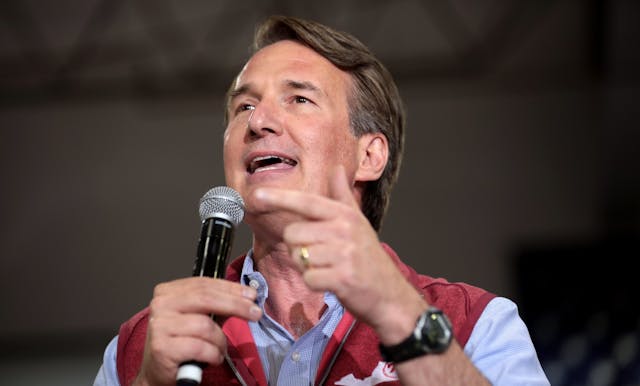Independent Candidates See 2014 as Opportunity for Change in Washington

Despite consistently low approval ratings of Congress, candidates outside the Democratic and Republican parties have faced an uphill battle gaining enough exposure and credibility to get elected.
Since 1877 (the end of Reconstruction), there have been 111 third party or independent candidates elected to the U.S. House of Representatives. Since 1949 (the Modern Era), there have only been six.
How many independents are sitting in the House today? Zero. That’s right, zero. All 432 current representatives (3 seats are vacant) are members of either the Republican or Democratic parties.
All 435 seats in the U.S. House are up for election in 2014. Using FEC filings and the Politics1.com directory, it has been determined that there are approximately 120 candidates running without the support of a party. Can these independent candidates overcome the obstacles and actually win these races?
Some of these candidates, likeChris Stockwell of Massachusetts (CD-6) and Mark Bray of Alabama (CD-5), maintain a strong belief that they will win. Nick Troiano (PA-10) is also optimistic and has even received support from voters outside of his area who do not have an independent running in their district.
Others, like Karen Johnson in Illinois (CD-3) and James Rouse of Virginia (CD-10), were unable to secure the necessary signatures to be placed on the ballot. They are examples of a system that can discourage similar efforts.
Johnson, however, is continuing her campaign as a write-in candidate. She is running on principle, with the hope that she can generate awareness that alternatives exist, and set the stage for a future campaign. Johnson says her state is currently the third hardest state to gain ballot access in, but she is encouraged by ongoing efforts to change this disparity.
Rouse was forced to prematurely end his campaign. However, he looks forward to a future attempt.
"My failure has only worked to inspire me to do better the next time I run," he said.
Name recognition and media exposure can be a particular challenge for independent candidates. Rouse and Johnson, in particular, expressed difficulty getting press coverage.
Rouse stated:
"The mainstream media does not seem to care about independent candidates until after they have made a strong victory."
Johnson noted that the media is reluctant to devote any attention until a candidate is on the ballot, adding to the difficulty of getting past that first hurdle.
Stockwell, Bray, and Troiano, however, have not found name recognition and media attention to be major issues.
Stockwell was front-page news in several local newspapers soon after a reporter found his filing on the FEC website. His race is in a hotly contested district, and he says the press recognizes the importance of his candidacy.
Bray says he has been sought after for interviews by the media from the day he turned in his signatures. He also claims to have been successful at gathering volunteers at local public events.
Troiano has run a traditional grassroots campaign, relying primarily on going door-to-door and appearing at local events. In addition, he has benefited from media exposure due to his past activism as co-founder of The Can Kicks Back, and credits his press secretary's initiative and persistence in making this happen.
An overriding sentiment expressed by these candidates is how receptive, appreciative, and supportive voters have been to the idea of an independent candidate.
Bray claims the approval rating for his ideals and platforms is close to 90 percent. He believes his district is ready for someone different.
"A vote for an independent restores power to the voter and ensures they will be heard regardless of their political ideology," he said.Stockwell said he too has received an enthusiastic response from the public. The major parties, he remarked, "are tired and in distress. Independents are fresh, real, and authentic. It resonates."
"Being an Independent is uplifting. It's exactly what the voters want to see, right now," he added.
Under the current system, minor party and independent candidates are often treated as "spoiler" campaigns -- campaigns that only take votes away from one major party or the other. Major party candidates like to use the concept of the "spoiler effect" to convince voters that they are wasting their vote if they vote for a non-major party candidate, but some independents don't see it this way.
“On Election Day, voters will really only have two options, they can continue politics as usual or they can vote for a new way of doing things," Troiano said. "We aren’t going to fix our political system until we fix the way we elect our leaders.”
Bray is in a unique position of running in a district without a Democratic candidate on the ballot. He is the sole challenger to the Republican incumbent.
"This allows for a much different conversation over the course of this campaign," he stated.
Can independent candidates really make a difference? Change doesn't often happen overnight, but it is possible for it to happen on election night.
"People in my district and in dozens of districts across the country have a new choice this year," Johnson said. "It takes courage to stand up in this way. It will take courage on the part of a lot of people on November 4 to begin to change our current political climate in Washington DC."



